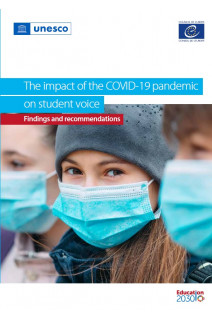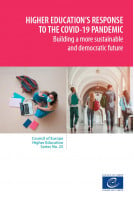A UNESCO / Council of Europe publication
The Covid-19 pandemic has had serious consequences on the education of young people and their ability to engage and participate meaningfully. In 2020, UNESCO and the Council of Europe decided to collaborate on a research project with a view to examining the impact of the Covid-19 pandemic on student voice and particularly the consequences of the subsequent school closures on student voice opportunities in Europe and in the Middle East and North Africa (MENA).
This publication details the findings of this study and provides recommendations for school directors and personnel, teachers, educators, policy-makers and young people to build on the lessons learned from the pandemic and help the education community work collectively towards promoting societies that are guided by human rights, with student voice and participation at the centre.
It is primarily intended for policy-makers, educators, teachers working in formal school systems. It may also be of interest to professionals working in non-formal education settings or other sectors – namely the justice, social and health sectors – working with student.
Acknowledgements Introduction 1. Context
2. Methods
2.1. Limitations
3. Results
3.1. Widespread loss of learning on student voice
3.2. Socio-economic barriers to participation
3.3. Digital citizenship
3.4. Resilience factors in student voice projects
4. Recommendations
4.1. Recommendations for school directors and personnel, teachers and educators
4.2. Recommendations for policy-makers
4.3. Recommendations for students and young people
5. References
ANNEX 1





